- Login
Site-Reading Writing Quarterly
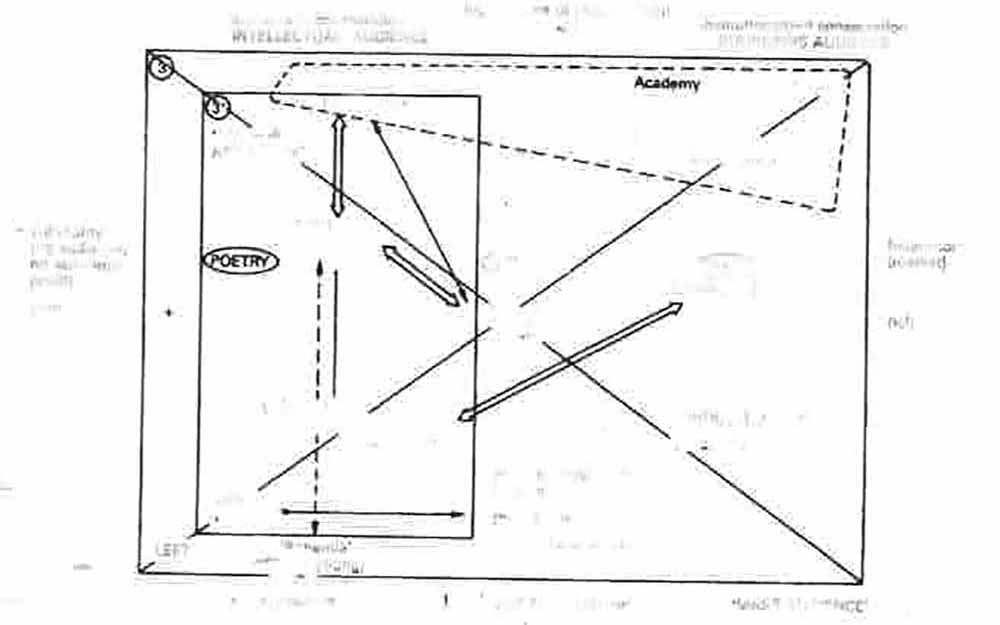
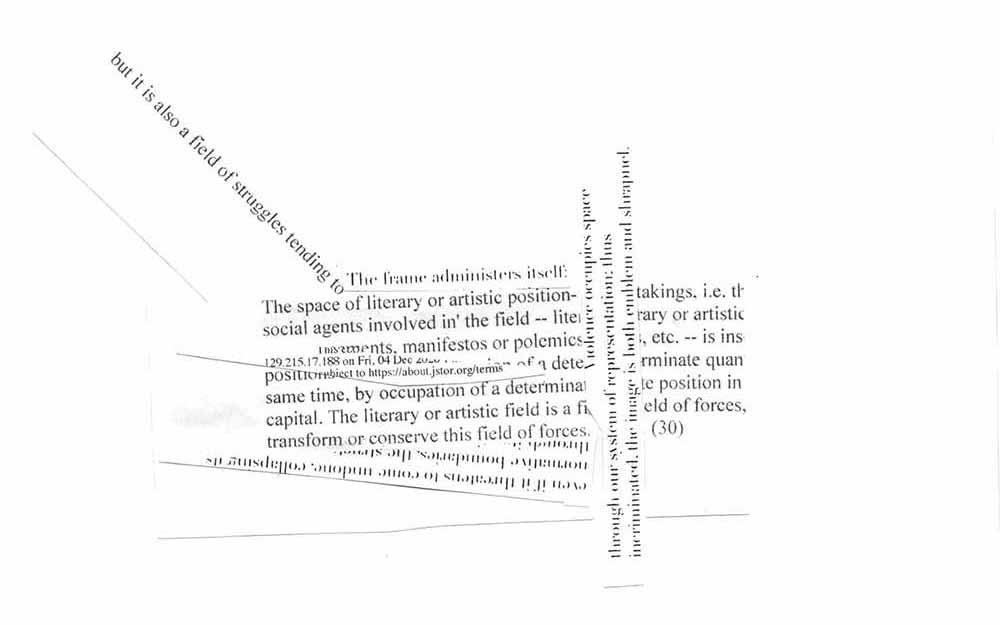
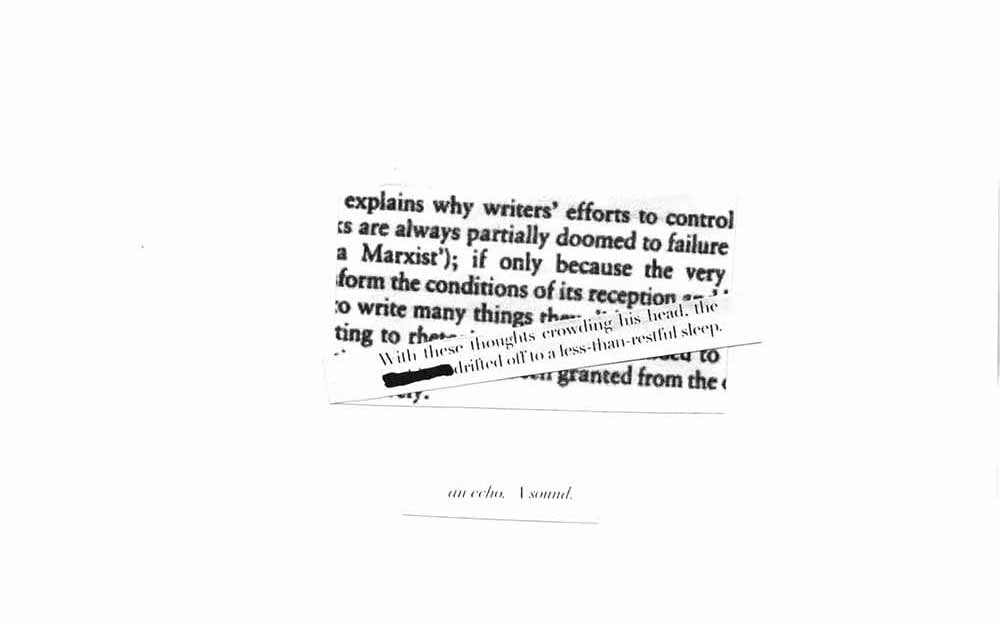
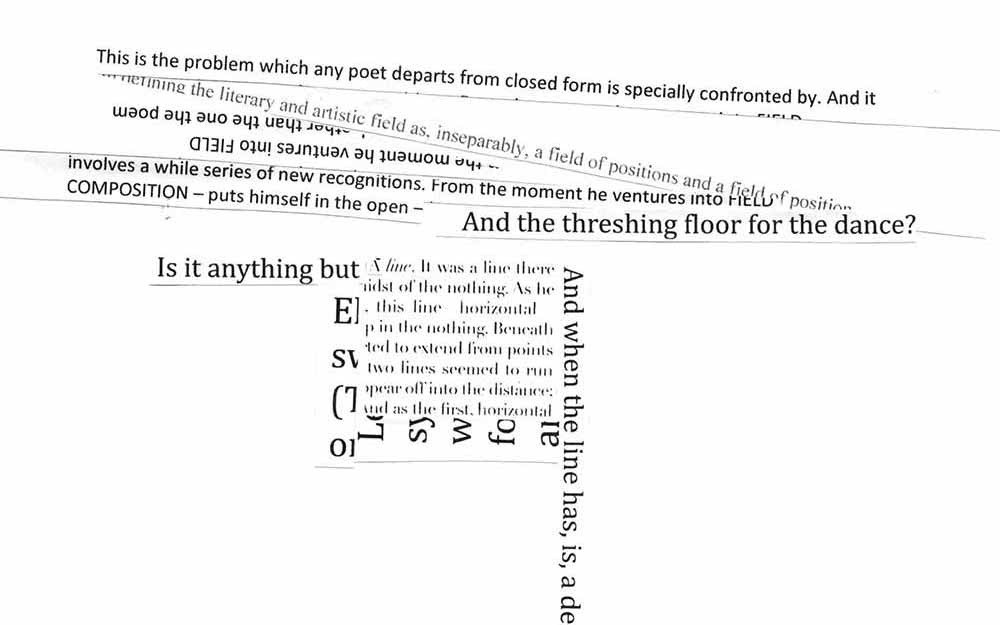
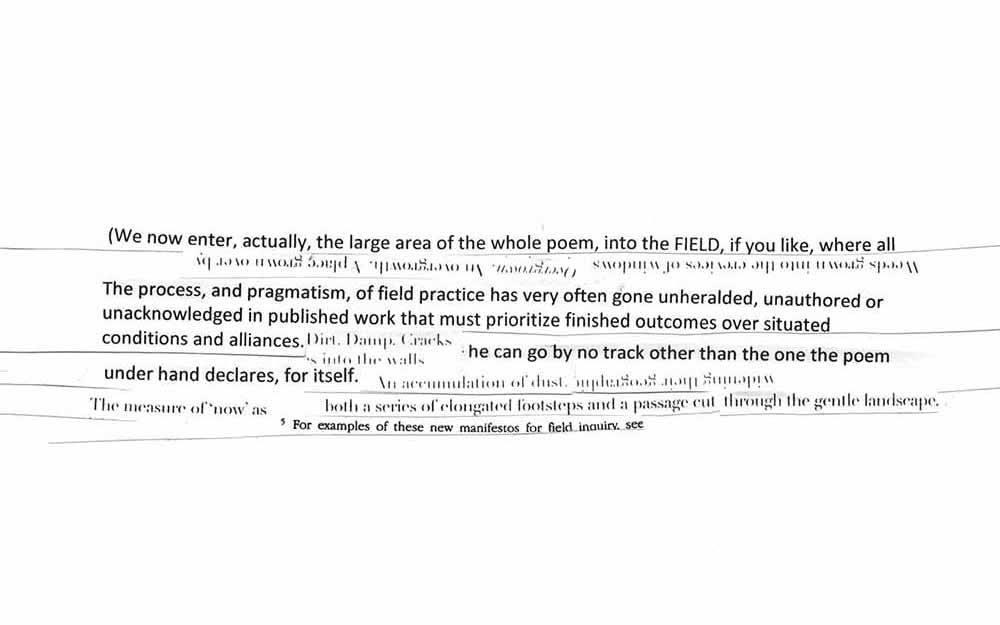
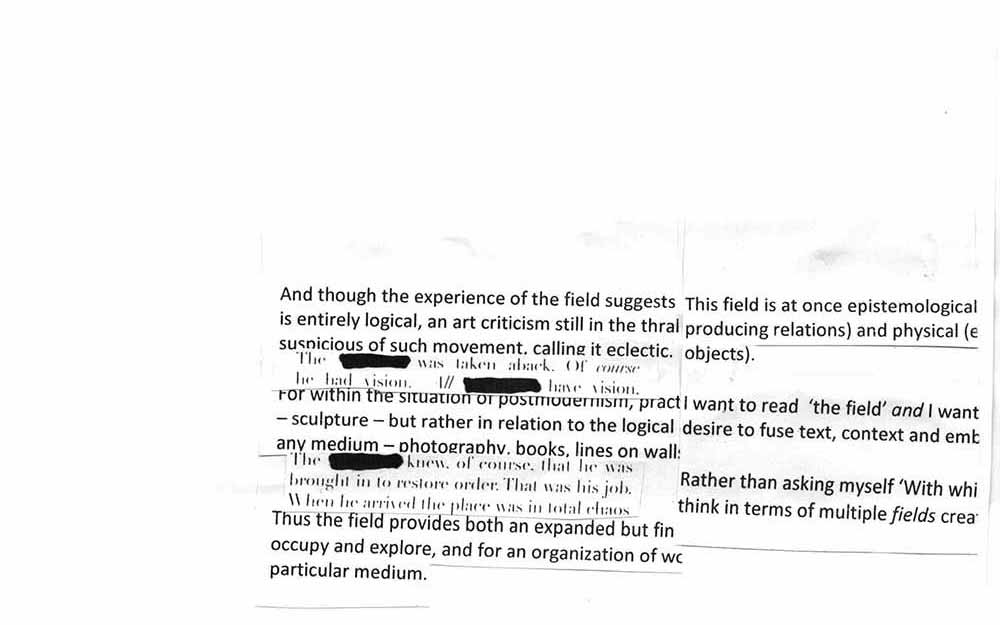
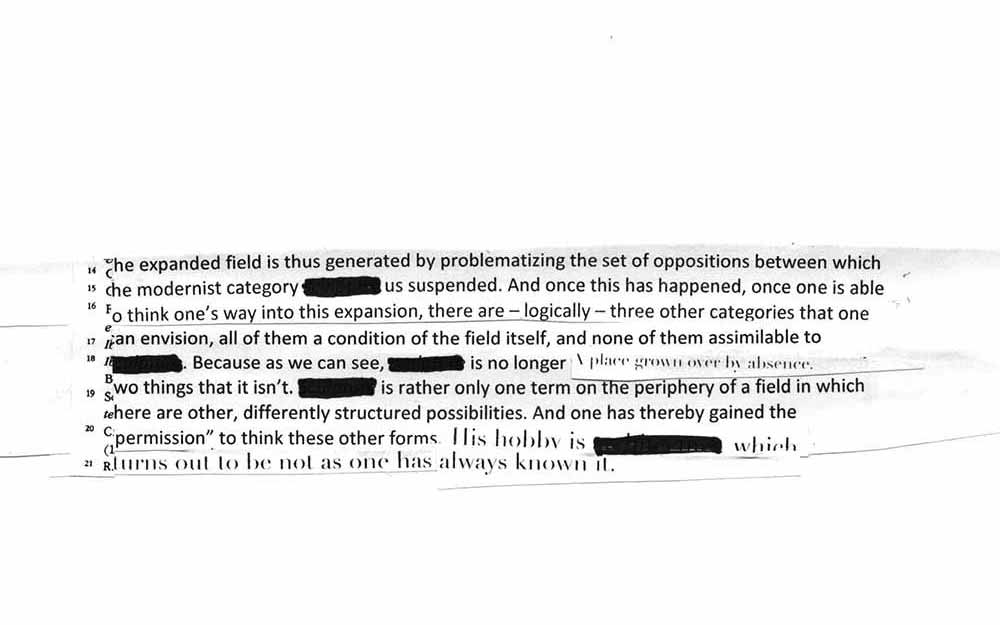
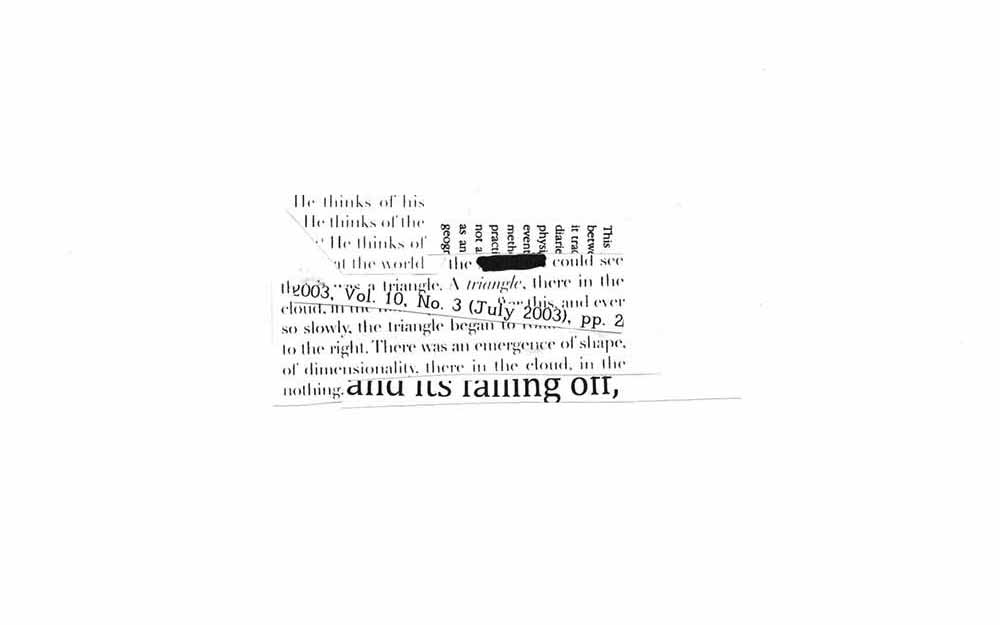
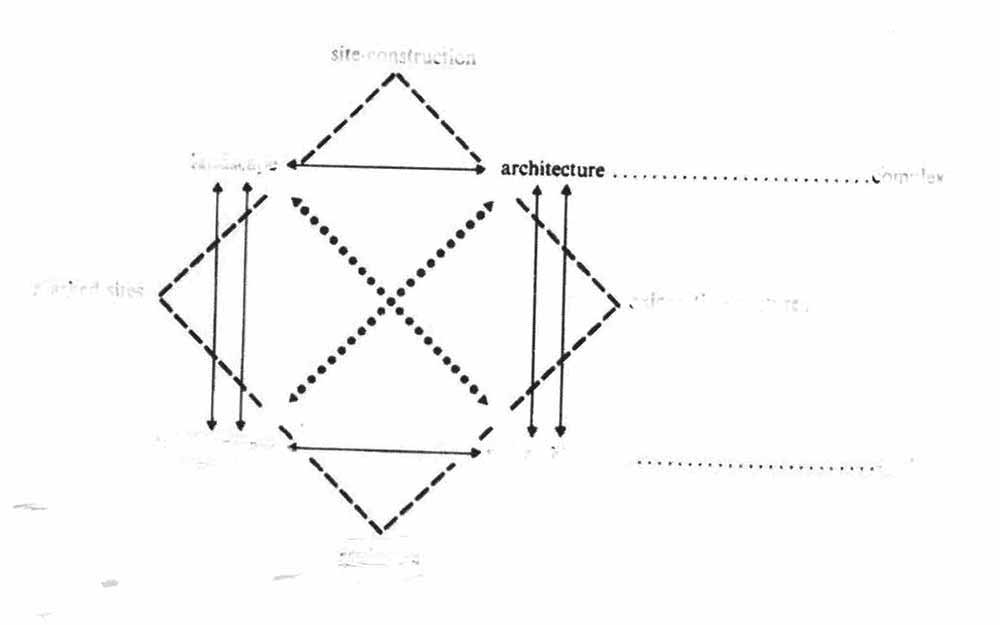
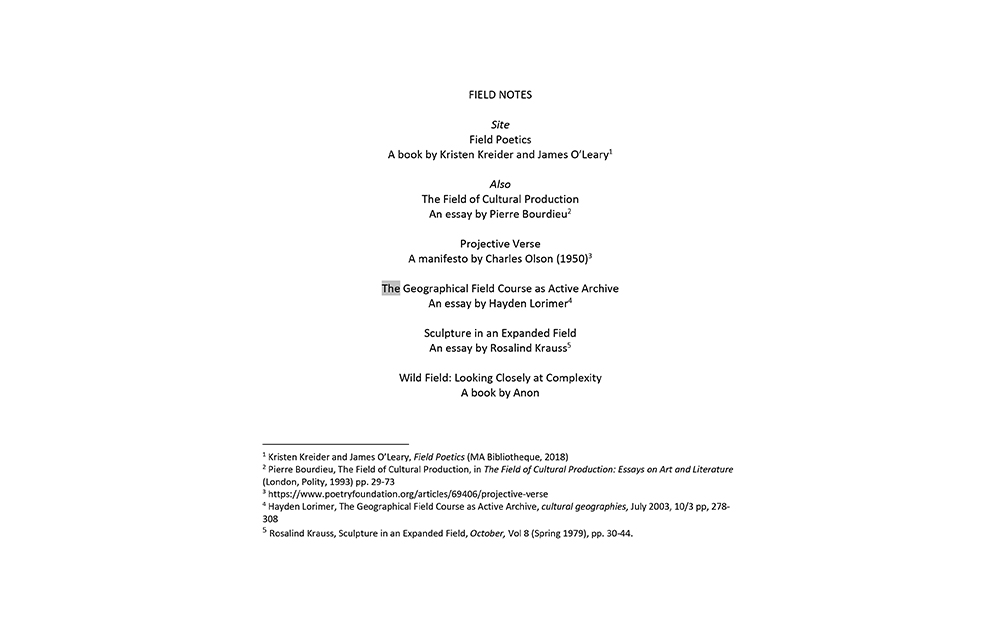
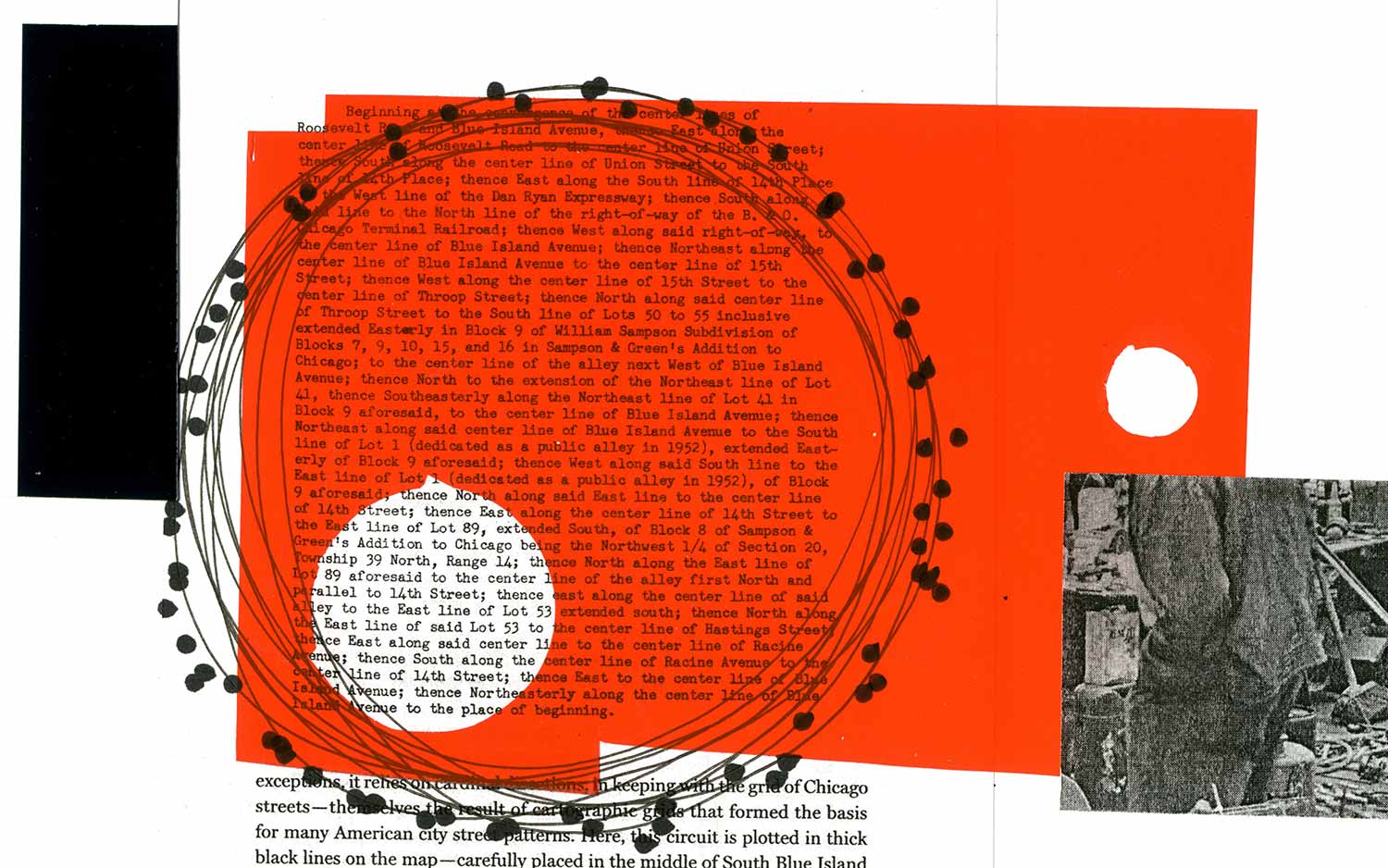

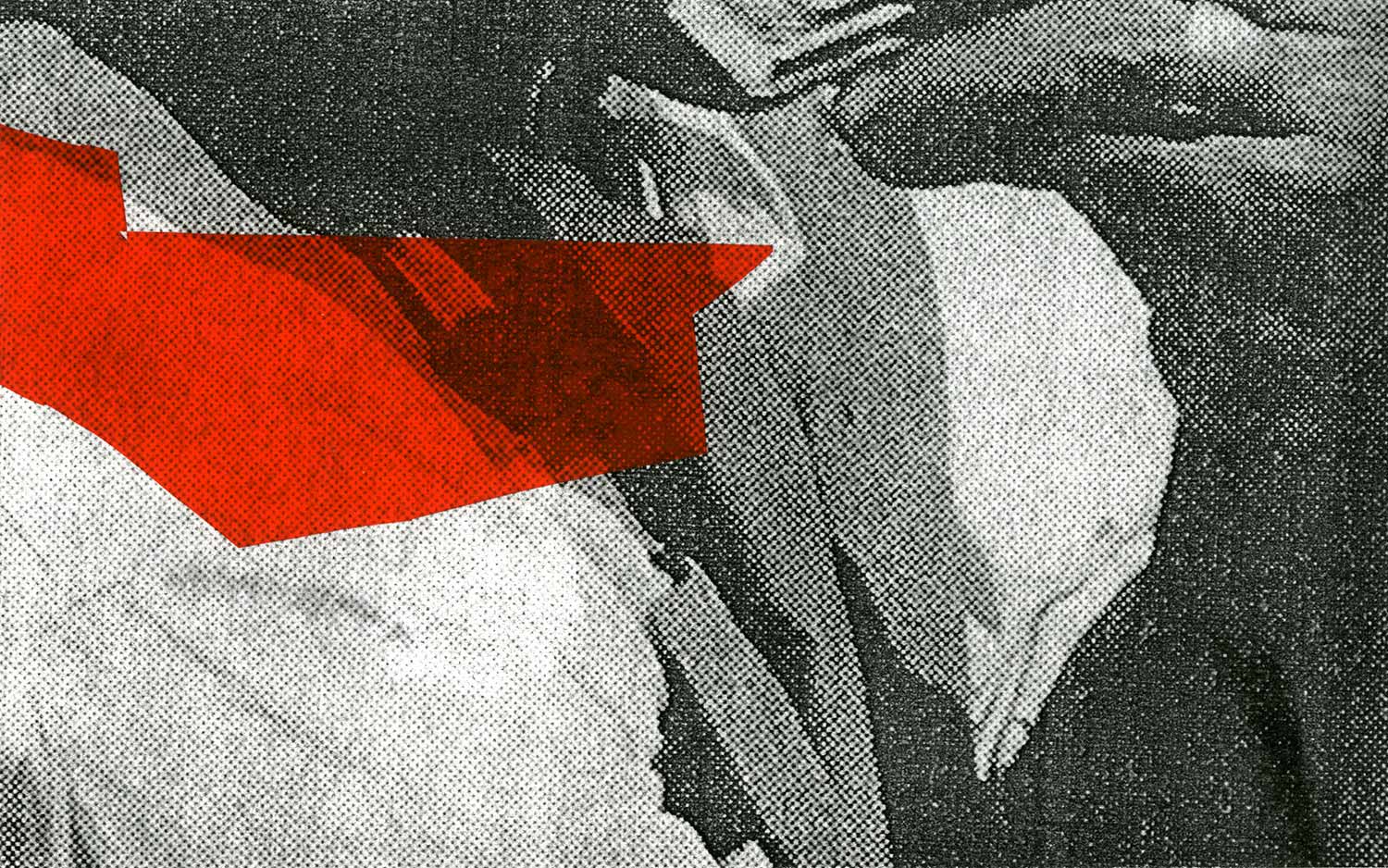

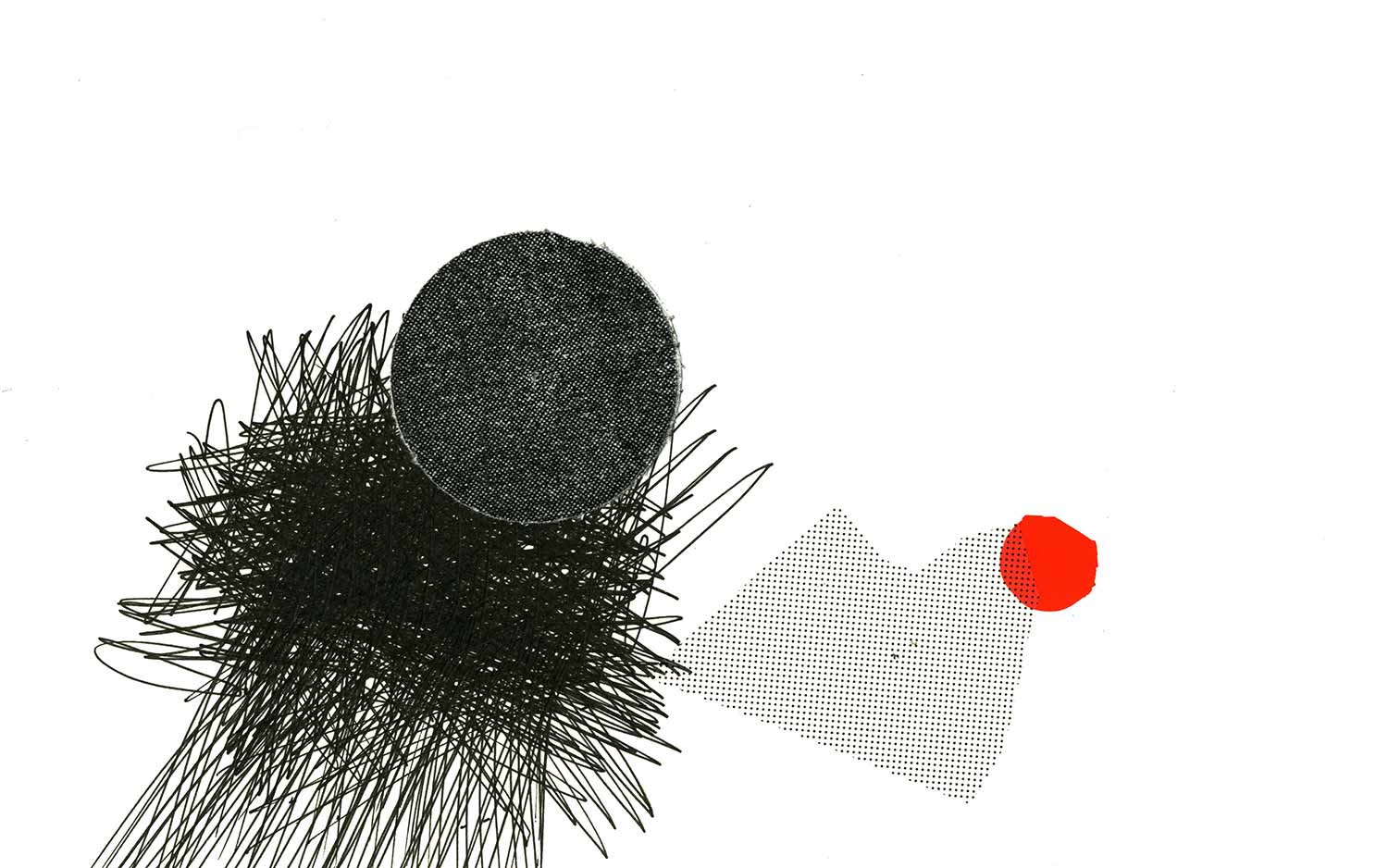
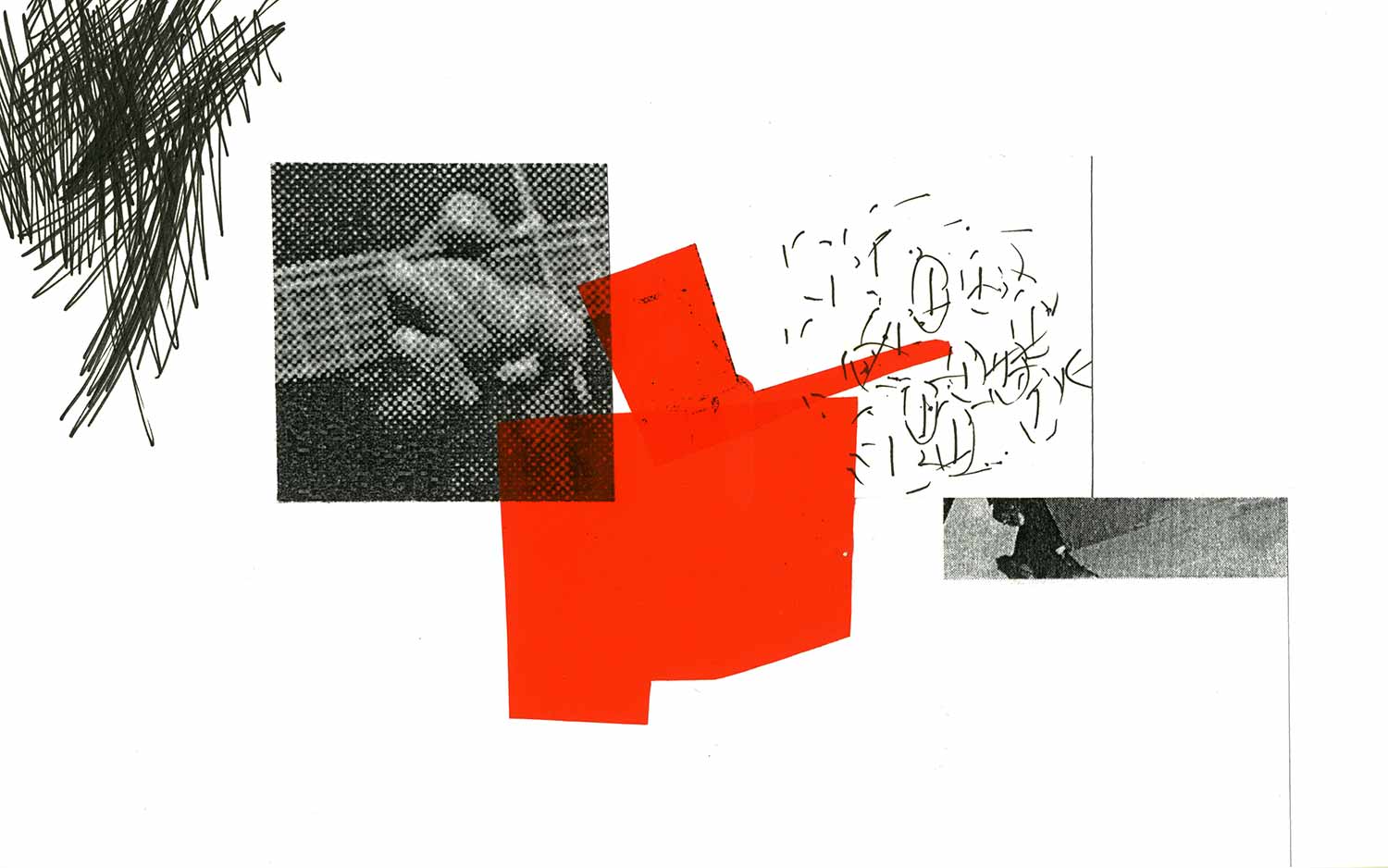
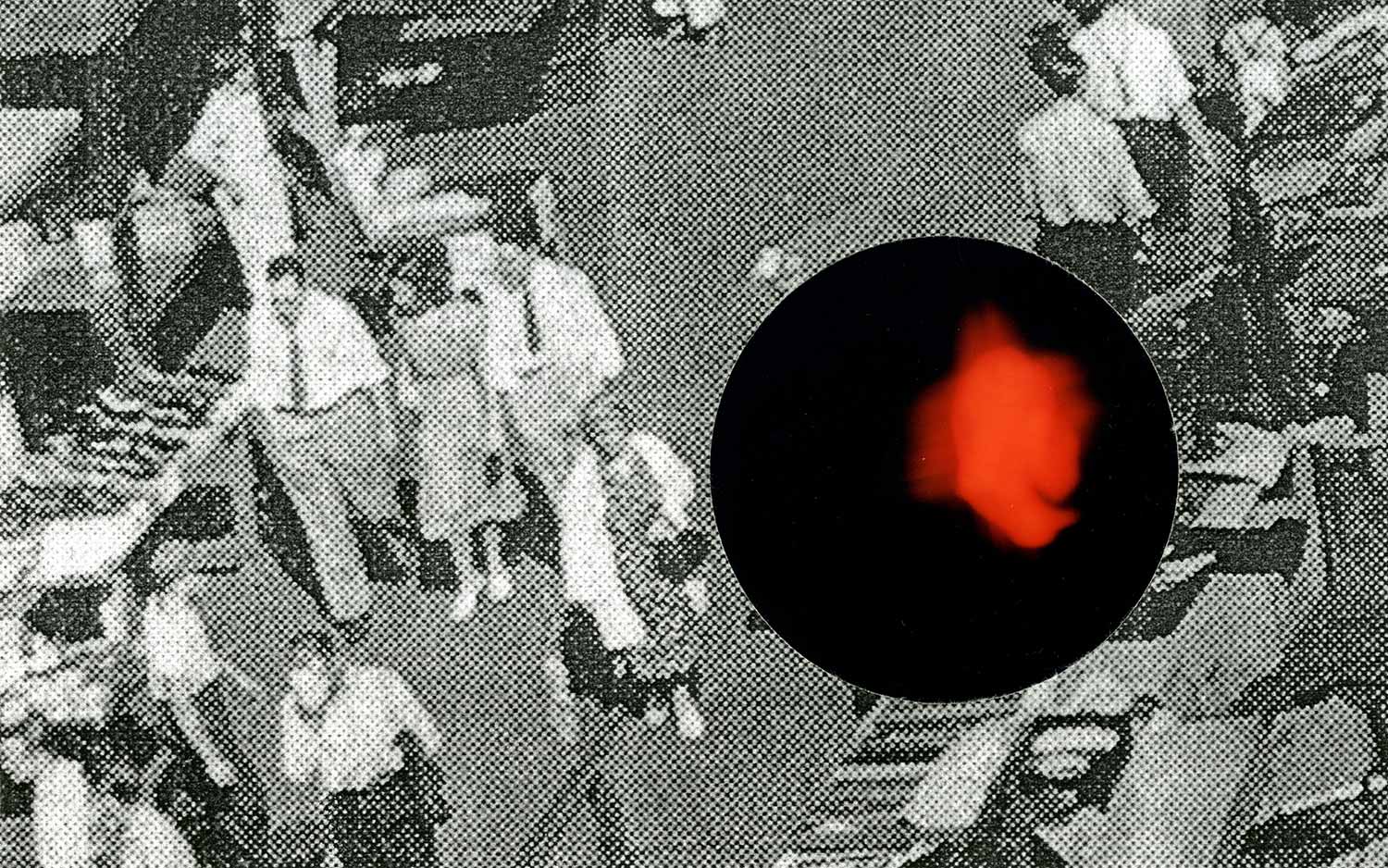
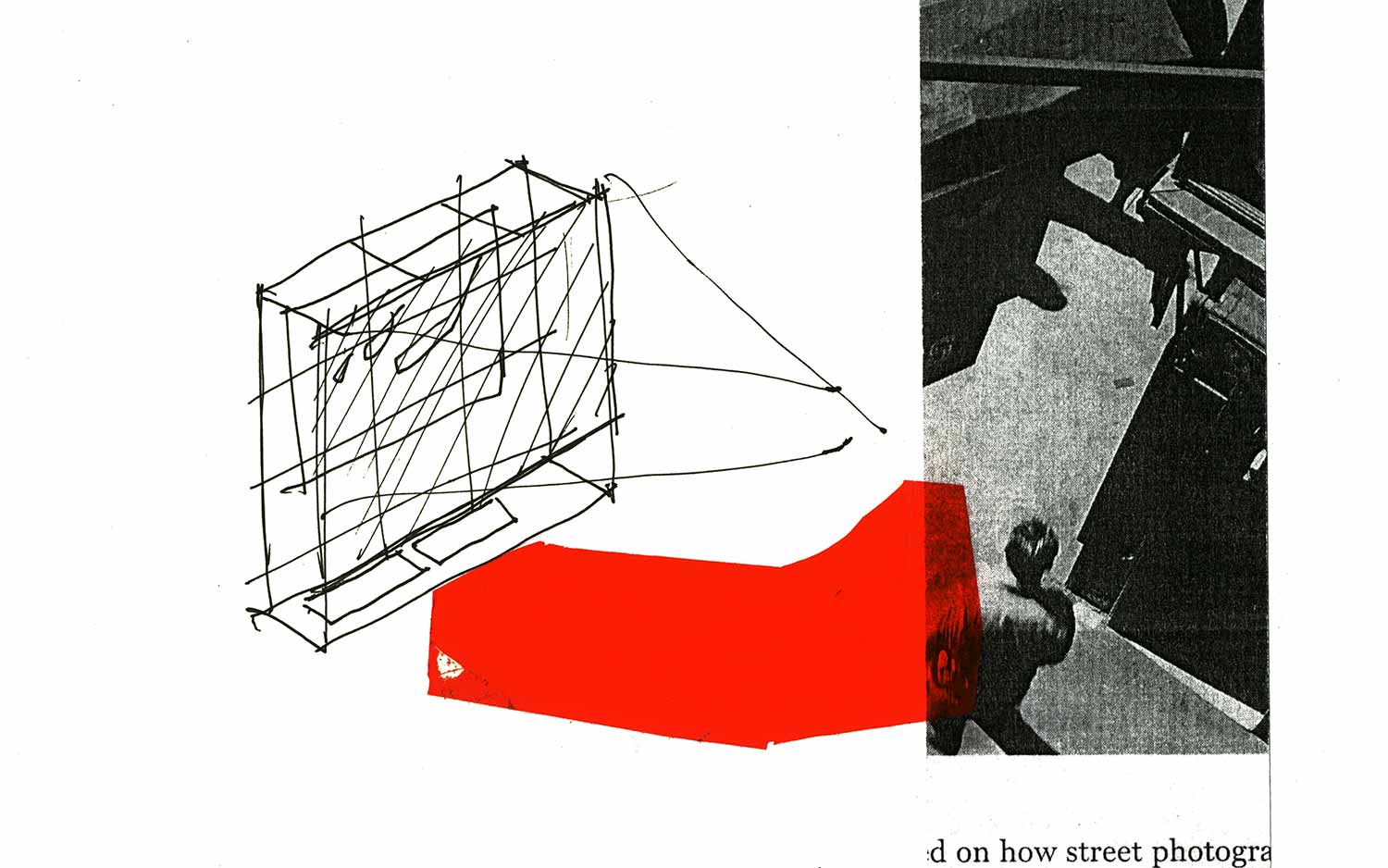
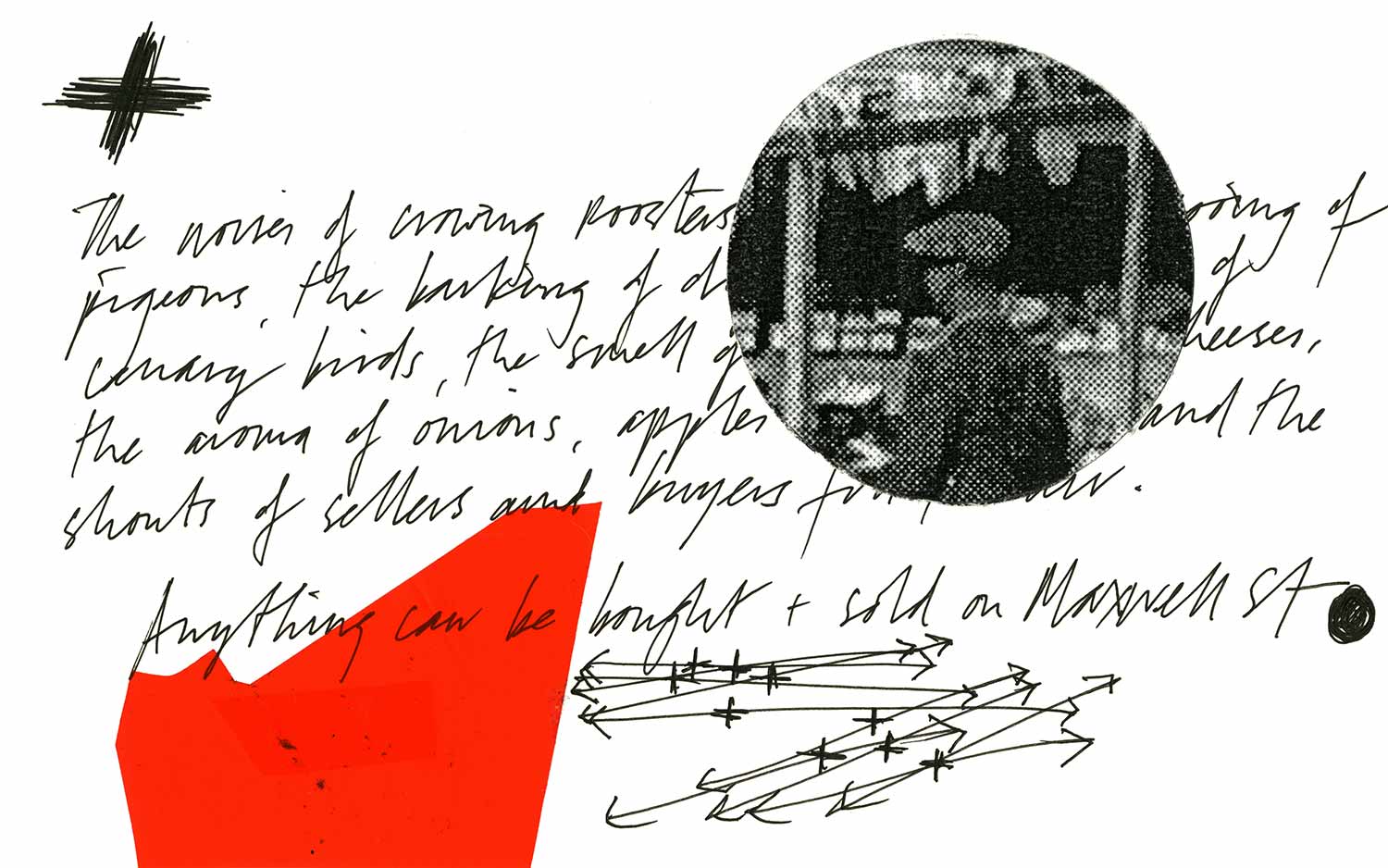
‘Media Archaeology (Maxwell Street I – IX) A set of images to be read in sequence’
Notes on the construction of these images:
These images were made while thinking about the erasure of the Maxwell Street Market in Chicago. These images might form a storyboard for a dramatic encounter with this place. In making these images, it seemed important to work with material stuff, to gather together, and to re-animate. We worked on a table full to overflowing, and on the surface of the floor at its edges. We used scanned and printed photographs from Tim’s book as source material. Other materials and tools for the work are composed of things we have found at markets, including an ancient set of scribing tools formerly owned by Mr. P.M. Shaw, obsolete ‘letraset’ layers of transparent tone and colour dumped from an architect’s office, and our own archival photographs capturing objects in motion in a darkened space.
Readers’ Biographies
We are at our happiest eating the dirt of place.
Reader’s Biography
Tim Cresswell was a reader before he was a writer. When in an art gallery, he reads all the text before he looks at the art. He misses double fold album covers with all the lyrics printed inside. When he says a restaurant has a good menu – he actually means the menu. Tim tries to carry his logocentrism lightly. When at home, he can be found reading all kinds of hybrid poetry/geography/cultural theory texts including books by Maggie Nelson, Claudia Rankine, Susan Howe and Anna Tsing. This year he was particularly struck by Richard Powers’ novel, Overstory.
Readers’ Abstract
Tim Cresswell’s Maxwell Street: Writing and Thinking Place documents the growth and tragic effacement of the Maxwell Street Market in Chicago. Through a skillful process of gathering, Tim allows the reader to have a Sunday-morning-slow wander through a place that no longer exists, to bump into some salty characters, to observe a galaxy of objects in flux, and to smell the fetid stench of the street. In parts a deep reflection on place-writing, an account of a once-vibrant place, and a theory of place, reading this book is a richly immersive, transporting experience.
Reader’s Abstract
Field Poetics combines several senses of the field including fieldwork (visits to sites), fields of expertise (poetry/prose and architecture) and the page as a field for the distribution of text, image and line. Field Poetics is a hybrid text which takes us to several sites in Italy, the Bonaventure Hotel in Los Angeles, the seafront of Lisbon, an abandoned gaol in Cork and and the Kansai region of Japan in order to explore what happens when poetry, prose, diagrams, scores, images and weblinks meet in an “expanded field” where each form dances with the others to explore both embodied and mediated relations to place.
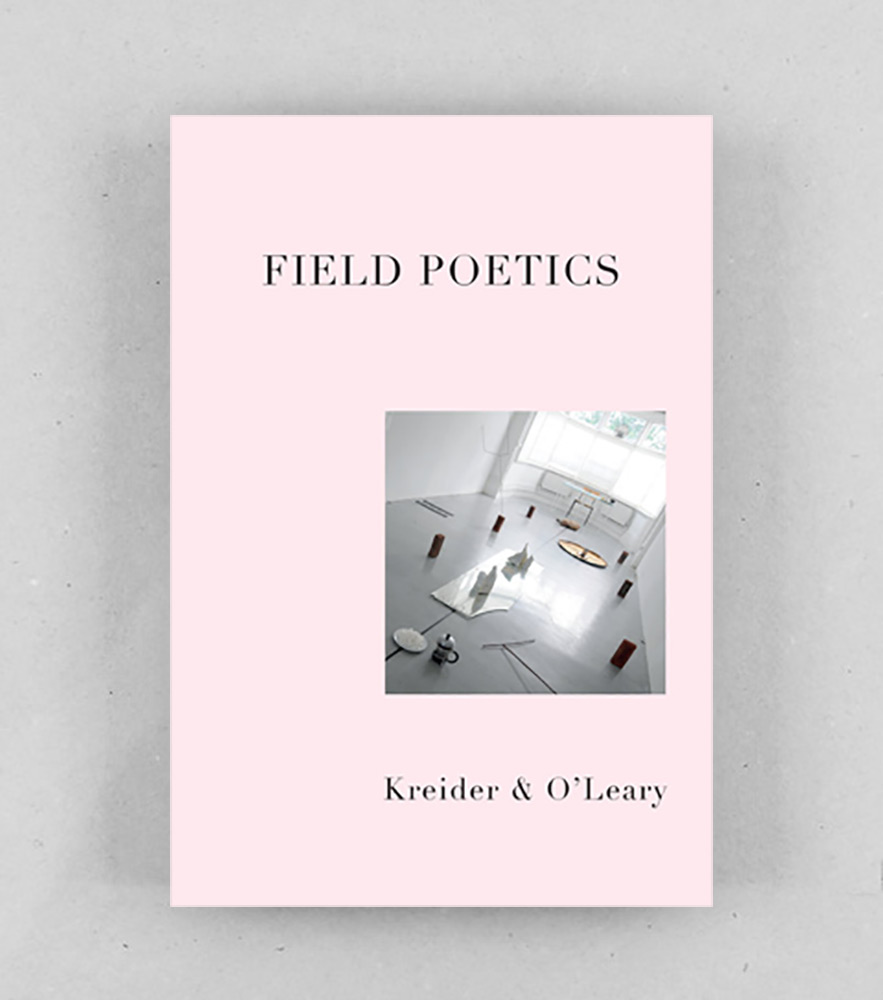
Field Poetics by Kreider & O’Leary
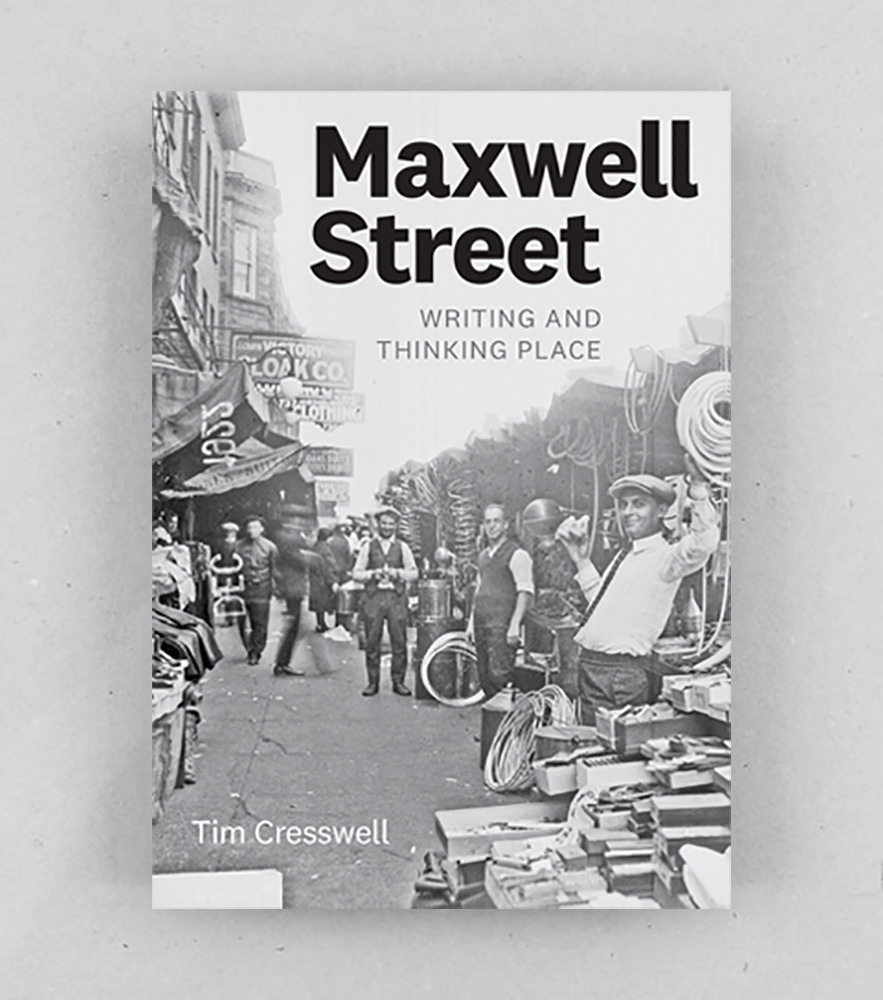
Maxwell Street: Writing and Thinking Place by Tim Cresswell
Writers’ Biographies
Kreider + O’Leary are a poet and an architect who collaborate to make work in relation to sites of architectural and cultural interest. Their work has been shown widely, including at the Tate, the Royal Academy and The Whitechapel in London as well as in gallery venues and sites across the UK, USA, Europe, Australia, South America and Japan. Kreider + O’Leary have co-authored two books: Falling (Copy Press, 2015) and Field Poetics (MA BIBLIOTHÈQUE, 2018).
Dr. Kristen Kreider is Professor of Fine Art and Head of the Ruskin School of Art at the University of Oxford.
James O’Leary is Associate Professor and Director of the MA Situated Practice programme at the Bartlett School of Architecture, UCL, London.
Writer’s Biography
Tim Cresswell is Ogilvie Professor of Geography at the University of Edinburgh. He is a cultural geographer by training, and the author or editor of a dozen books and over a 100 articles on the role of space, place and mobility in social and cultural life. He has PhDs in Geography (Wisconsin) and Creative Writing (Royal Holloway, University of London). Cresswell is also a widely published poet with three collections – most recently Plastiglomerate (Penned in the Margins, 2020). His most recent academic book, Maxwell Street: Writing and Thinking Place was published in 2019 by the University of Chicago Press.
Writers’ Abstract
Field Poetics explores five different places, each with a story to tell, each with a unique mode, form, and vocal register through which to tell it. The writing journeys through a sequence of Andrei Tarkovsky’s ‘film images’, the multi-dimensional, interconnected space machine of the Bonaventure Hotel in Los Angeles, maritime pockets on the edge of the city of Lisbon, a history of silence and surveillance in a derelict wing of the Cork City Gaol, and the transposition of a centuries-old landscape aesthetic through video, performance, and pop in fourteen locations across the Kansai region of Japan. Sometimes documentation, sometimes score, and sometimes the work of a poet and an architect engaging with these sites, Field Poetics spins, suspends, and extends a relation to place.
Writer’s Abstract
Maxwell Street: Writing and Thinking Place is three things. It is a book about Maxwell Street in Chicago, a place that was, for most of the twentieth century, the site of North America’s largest open-air market. It is a book about writing place using montage, lists, parataxis, common-placing and other textual devices to mirror the assembled complexities of Maxwell Street. It is a book about how we might think place, linking previously oppositional senses of place as a territory and place as a site of gathering, weaving and assembling.
About Issue 5
Reading Writing Quarterly celebrates reading and writing as situated practices, releasing a special pair of seasonal reviews four times a year.
Each solstice and equinox I invite writers to swap recently completed written works and to provide a situated ‘review’ of each other’s book. These acts of exchange open up ways of ‘reading writing’ differently, exploring the practice of ‘re-viewing’ from a situated perspective, generating spatial ways of reading and writing the genre and texture of the ‘critical review essay’ together, creating something far more entangled.
For this 21 December 2020 solstice episode, the fifth of Reading Writing Quarterly, I have invited geographer and poet, Tim Cresswell, and architect and artist-poet duo, Kreider and O’Leary, to respond to each other’s books. Maxwell Street is Cresswell’s historical and poetic investigation of a specific location in Chicago, while Kreider and O’Leary’s, Field Poetics, explores how text and place intertwine through five of their site-related projects.
2020 has been a year defined by the COVID19 pandemic. Many have survived so far, but others have not. Lives have been lost. It has been a time of sadness and grief. But we have also shared many moments of kindness, laughter and joy. (perhaps more than usual?) The digital screen has brought people together, not only those who are usually physically close, but communities have been able to extend across the globe. As well as framing working life, we have eaten, cried and laughed together in the time and space of the digital screen. Many talk of being exhausted by this ‘screen time’. For that reason, it is perhaps no surprise that Tim, and Kristen and James, decided independently to read each other’s books by making images. The visual work they have produced demands no lengthy task of intense reading, line by line. Instead they have put together parallel series of intriguing combinations of letters and textures. Their compositions allow our eyes to wander around, to explore a bit, creating readings that unwind …
This December solstice also sees some timely new contributions to Critical Spatial Practice and Site-Writing – all highly relevant to this historical moment. Jan Kattein Architects’ response to COVID19 in London, The Wandsworth Food Bus (2020), is a converted double decker bus bringing affordable, fresh food to chronically underserved areas; Lilian Chee shares 03-FLATS (2014), a film directed by Yuan Bin Lei, that she conceptualised and researched, and which focuses on the intricacies of three women’s domestic lives in Singapore; Tijana Stevanovic’s (small memorials) (2013–15), London/Leskovac/Newcastle, is an homage to her father and the memorials he designed; while Eloise Maltby Maland’s A Lunar Perspective (2018-2020) orbits around Lunar House, a UK-based Home Office Visa and Immigration building, questioning practices of bordering and othering.
If you would like to contribute a project to either website, or have a written work that you’ve recently completed and/or someone else’s work that you’d like to read, please get in touch. And if you don’t want to receive these updates, then do let me know, and I can take you off the listing.
My warmest solstice greetings to you all!
Jane


Anna Andersen reads Remote Practices: Architecture at a Distance edited by Matthew Mindrup and Lilian Chee (London: Lund Humphries, 2022)

Mary Modeen and Iain Biggs read Michael Hirschbichler’s Spirit Grounds (Verlag für moderne Kunst GmbH, 2022), a publication that accompanies an exhibition
Michael Hirschbichler reads Creative Engagements with Ecologies of Place: Geopoetics, Deep Mapping and Slow Residencies edited by Mary Modeen and Iain Biggs (Routledge, 2020)


MYCKET read Slow Spatial Reader, edited by Carolyn F. Strauss (Amsterdam: Valiz, 2021)
Carolyn F. Strauss reads When Walls Speak, edited by MYCKET, issue 13 of Girls Like Us (2021)






